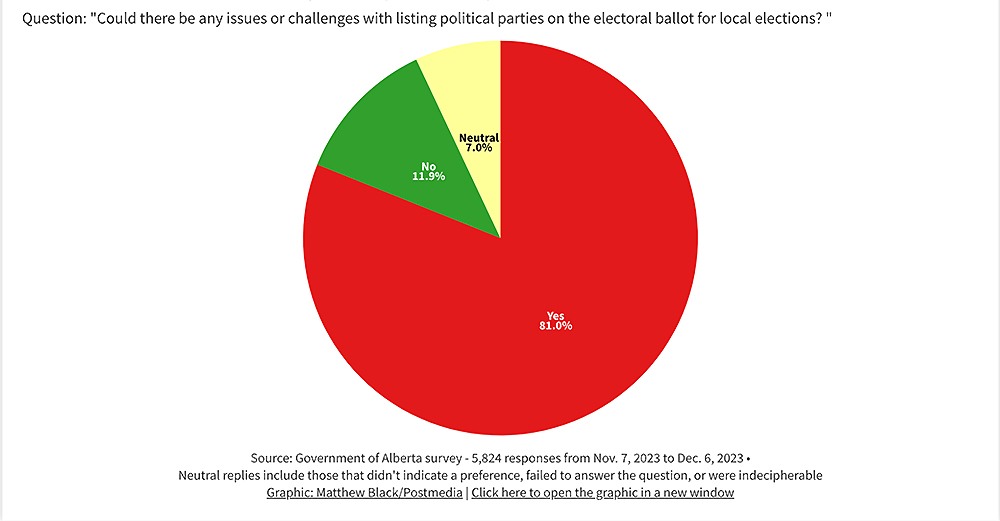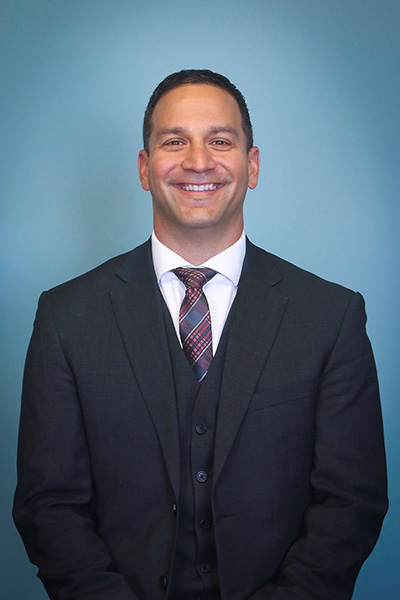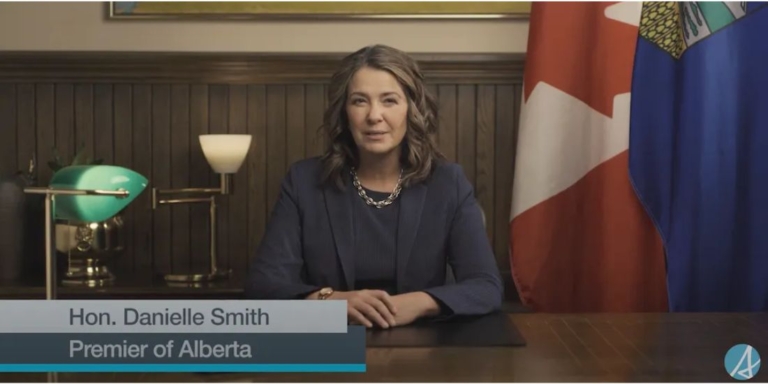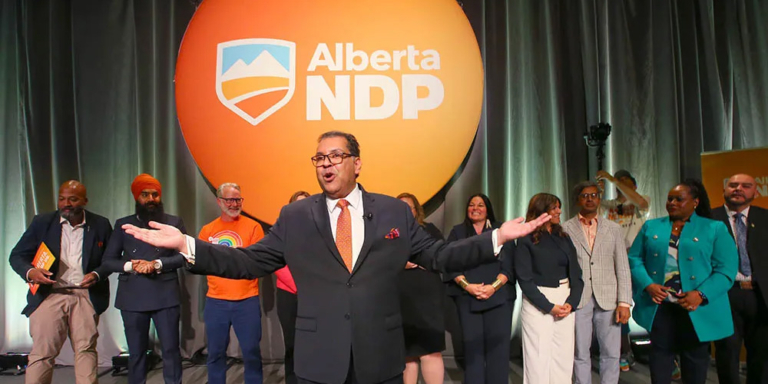Despite what some politicians say, Alberta is facing some big hairy problems with no easy solutions–an ongoing drought, the lack of affordable housing, spiking food prices, and an increasingly nasty political culture where finger-pointing has replaced working together to find solutions.
With our national and provincial elected officials spending more time playing gotcha with their opponents, rather than solving people’s problems, more and more challenges have trickled down to our local mayors and councils.
We’re in some serious pickles, and Danielle Smth’s government’s solution?
Allowing partisan politics in municipal elections.
Huh?
What does this mean? It means allowing local political candidates to affiliate themselves with a provincial party like the NDP or Conservatives.
Albertans are not keen on the idea.
The declassified public surveys conducted by Smith’s government, along with polls by outside agencies show that most Albertans don’t support the notion.
“They felt that by introducing that [party politics], the people who get elected will be serving the party first and not the people they’re actually elected to serve,” said Ward Nakota Isga Councillor Andrew Knack to Global News.
The most common reasons for not supporting political parties in municipal elections were fears of increased division and “American-style politics” or city counsellors being overly influenced by party ideology rather than resident needs.
Only one out of ten Albertans thought the potential change wouldn’t be an issue.
However, the UCP government has just announced that, despite the lack of public support, they’ll introduce legislation to make having affiliated party names on municipal ballots the new norm.


What’s The Reason?
Smith’s government says the move’s main point is to ‘peel back the curtain’ and reveal the party ties that Smith says already exist in municipal politics.


“Albertans deserve more clarity about who and what people are voting for. Currently, party affiliation is not allowed under the Local Authorities Election Act,” Smith said at a recent address to civic leaders.
Her primary concern is with larger cities with a mix of political leanings.
She cited Edmonton’s single-use paper and plastic bans as evidence of the local municipal government’s apparent ‘liberal partisanship.’
“It may be that that dynamic has not developed in most of the municipalities, but it’s clearly developing in Calgary and Edmonton,” she stated.
It’s a simplistic take.
Protecting the environment is hardly a solely leftist concept.
Rural and often conservative farmers and landowners are much more affected by environmental concerns than your average city slicker, and they often care the most about the land.
It wasn’t just city-folk raising environmental concerns about the Australian-owned Grassy Mountain Coal Mine, which threatens the ecology of watersheds in southern Alberta.
Conservatives were also the first to propose a carbon tax, but that’s another article.
Smith thinks people should know their candidates’ political leanings and opinions.
On the surface, this is far from a controversial opinion.
No matter your political leaning, you want to know where candidates stand on issues.
However, in municipal politics, a local candidate’s view often doesn’t neatly fit into the box of a particular provincial party.
The Concerns
Alberta Municipalities President and Mayor of Wetaskiwin, Tyler Ganda, has repeatedly expressed the group’s worries about implementing municipal party legislation.


“Listen to regular Albertans who have repeatedly said they simply aren’t interested,” he told the Edmonton Journal.
The “regular” Albertans he’s referring to can be seen in the replies to the Alberta Municipalities-commissioned survey by respected pollster Janet Brown.
There were, of course, some Albertans who could see a benefit in making political ties clear.
“The more information the electorate knows about a candidate, the better informed a decision each voter can make,” states one such answer.
Similar to Danielle Smith’s reasoning.
However, as Ganda stated, most respondents were concerned with potential repercussions.
“Representatives often have a range of opinions on issues, which is very valuable. Reducing their opinions to a party line would be harmful to good governance,” one reply states.
“Candidates should be judged by their policies and character, not the colour of their sign,” says another reply.
“Affiliating political parties will add a layer of red tape and bureaucracy,” reads another.
The overarching concept that ran through many answers is best represented by a response that states, “Adding parties would create more polarization and division, exactly the opposite of what municipal politics needs.”
Taking Over Alberta?
The most interesting responses asked why this legislation is being pushed so heavily in the first place.
“We have recently seen how a small group of motivated people can take over a party. Exposing municipal elections to this kind of manipulation will weaken public trust in the electoral process,” summarized one respondent.
The ‘small group’ they’re referring to is Take Back Alberta (TBA), a ‘right-leaning, ‘Christian Nationalist’ group.
Many members of the UCP board of directors have strong connections to TBA, and the group claims responsibility for removing former Premier Jason Kenney and facilitating the rise of the current Premier Danielle Smith.
TBA is led by David Parker, who is also close to Danielle Smith.
The TBA plans to takeover local school boards in the next round of elections.
Multiple municipal elected officials have told Postmedia that TBA is the driving factor behind the push for parties.
While we can’t confirm this directly, it’s worth examining.
This is especially true when it’s clear that Albertans say “No,” but Smith’s government is ignoring them and saying “Yes.”








